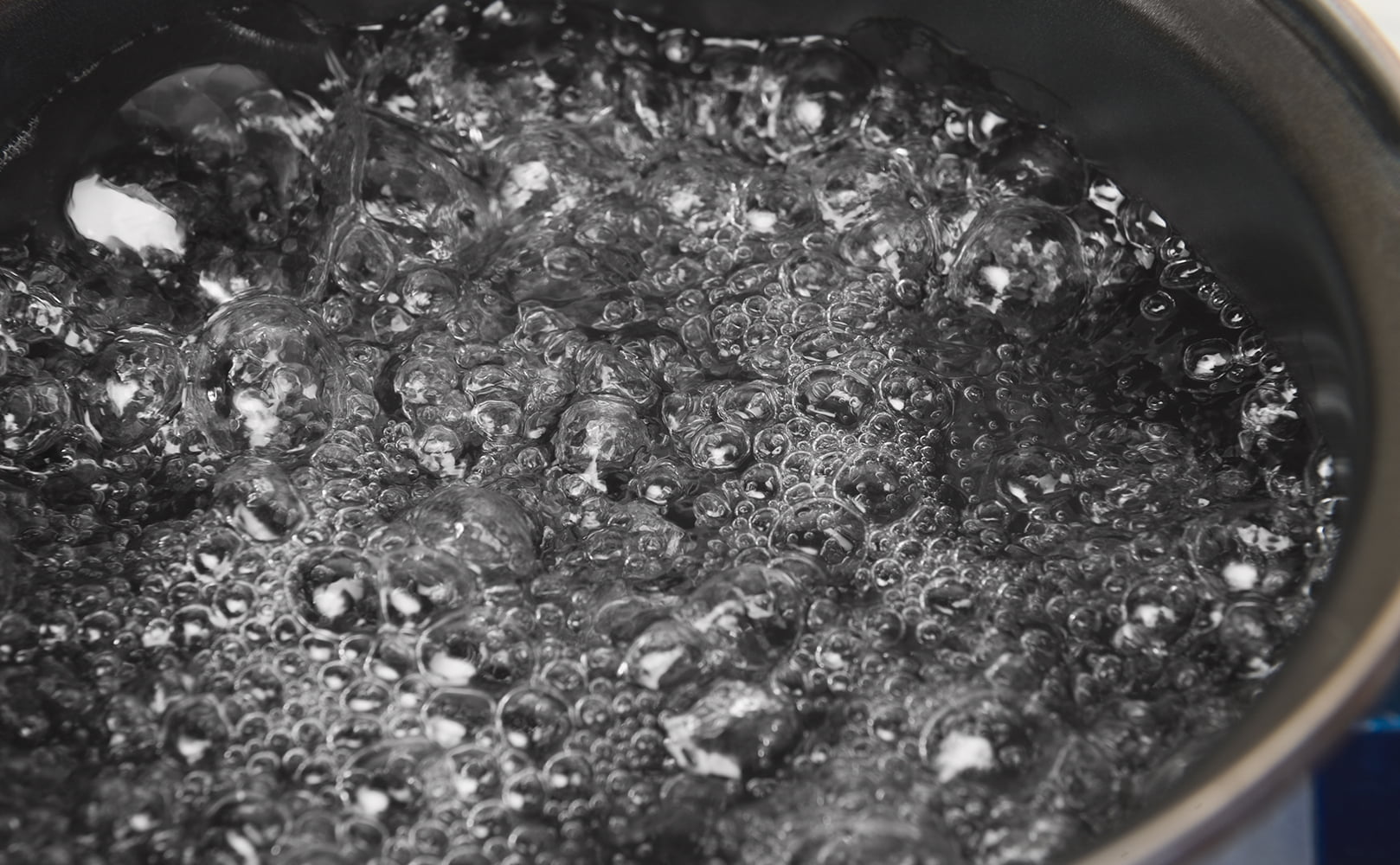Do I Need to Boil Reverse Osmosis Water?
Written by: Alexandra Uta // Last Updated: Jan 11, 2023
This page may contain affiliate links. If you buy a product or service through such a link we earn a commission at no extra cost to you. Learn more.
Our bodies are made up mostly of water, and we all know the importance of drinking the purest water we can get our hands on.
Boiling water is a good start. But what if you are already using a reverse osmosis system? Do you need to boil reverse osmosis water, or is it a waste of time and energy for the most part?
Let’s find out!
Key Takeaways
- There is no need to boil reverse osmosis water generally, though it is advisable during a boil water notice.
- Reverse osmosis systems remove most bacteria, viruses, and cysts if functioning correctly, so there is no need to boil it further as it is already very pure and potable.
Do I Need to Boil Reverse Osmosis Water?
Unless there is a boil water advisory, you do not need to boil reverse osmosis water even when used for drinking.
Reverse osmosis systems do a remarkable job of filtering out most if not all harmful pathogens, metals, and chemicals from drinking water.
Thus, RO water does not require additional purification unless your water is highly contaminated. But even if that’s the case, boiling will rarely be the right treatment method.
Why Reverse Osmosis Water Doesn’t Need Boiling
Reverse osmosis water is already extremely pure. Almost 100% H2O!
Providing the system is in good working order, and the maintenance schedule is adhered to, it will remove most waterborne pathogens.
In contrast, boiling barely removes any contaminants from water; it simply kills pathogens. If you have a decent RO system and are using municipal water deemed safe for drinking, then no further treatment is required.
What If There’s a Boil Water Advisory?
A properly functioning RO system can remove pathogens from water, but this can be affected if the water is highly contaminated, if your unit has not been well maintained, or if your unit has been purchased from an unregulated source like a hardware store.
For these reasons, during a boil water advisory, you should boil your reverse osmosis water just to be on the safe side and replace all the filters of your RO system after the advisory is lifted.
Potential Contaminants
Potential contaminants that may enter the water supply during a boil water advisory include bacteria, cysts, and viruses. These can cause diarrhea, cramps, nausea, vomiting, and fever.
How Long to Boil to Make Your Water Safe
- If you are at an altitude below 6,562 ft, bring your water to a rolling boil for at least 1 minute before cooling.
- If you are above this altitude, make that 3 minutes.
- If you are using the water to mix baby formula, boil for at least 2 minutes.
What Does Reverse Osmosis Remove from Water?
A decent RO system with pre and post-filtration steps can remove a broad range of contaminants. This includes arsenic, cadmium, chlorides, chromium, copper, cysts, fluoride, lead, nitrites, nitrates, radium, sulfate, VOCs, PFAS, and much more.
Reverse osmosis also removes minerals from water, including the good ones, so some systems incorporate a remineralization filter to add them back in after the water has completed the RO filtration.
Pros & Cons of Using an RO System
To decide if an RO system is right for you, it’s important to consider its pros and cons.
- Effective Contaminant Reduction – Removes hundreds of impurities due to its multi-filter system.
- Improved Water Aesthetics – Water is generally clearer and neutrally flavored.
- Easy to Install and Use – Easy to install and maintain/replace filters.
- Water Wastage – The systems can waste up to 4 gallons of water for every gallon purified.
- Loss of Healthy Minerals – You can combat this by adding a remineralization component.
If you have any thoughts about the question, do I need to boil RO water, please don’t hesitate to leave a comment below!
Information provided on BOS is for educational purposes only. The products and services we review may not be right for your individual circumstances.
We adhere to strict editorial guidelines. Rest assured, the opinions expressed have not been provided, reviewed, or otherwise endorsed by our partners – they are unbiased, independent, and the author’s alone. Our licensed experts fact-check all content for accuracy. It is accurate as of the date posted and to the best of our knowledge.


